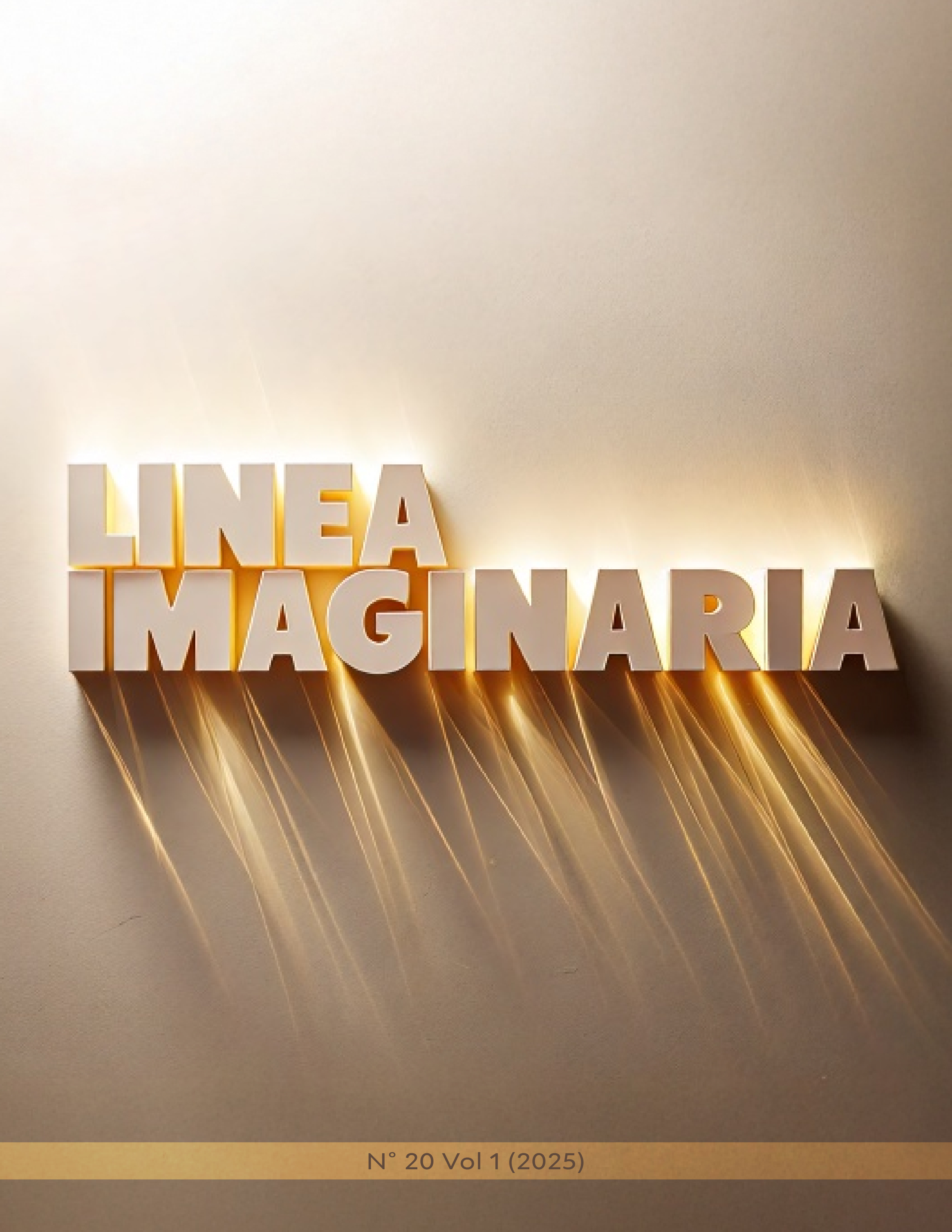THE IMPACT OF THE AI ON THE PRIMARY EDUCATION: CHALLENGES AND OPPORTUNITIES.
DOI:
https://doi.org/10.56219/lneaimaginaria.v1i20.3688Keywords:
Elementary education, Artificial Intelligence, Perceptions, LearningAbstract
The 21th century has brought with them an impressive progress of the new technologies that caused a strongly impact in the everyday life of the childs, young people and adults; it has increased the creation of digital tools and TIC’s for daily use by men, and they’re entering in every each of the spheres since social until educational. For these reasons it is important to know how they work and how they could be used for such a preponderant area as education and with an emphasis on primary education. The article aims to reflect on educational experiences that have incorporated artificial intelligence tools in primary education, which is the case of Artificial Intelligence (AI). The methodology used was an essay type with a critical – reflective look that analyzes the impact of educational experiences that make use of AI and how its challenges and benefits affect primary education. It can be concluded that AI in primary education offers an opportunity to personalize learning and improve classroom efficiency. However, it requires adequate training for teachers and equitable access to reduce the inequality gap. An ethical approach must be taken to ensure inclusive learning and make good use of AI.
Downloads
References
Bhutoria, A. (2022). Personalized education and Artificial Intelligence in the United States, China, and India: A systematic review using a Human-In-The-Loop model. Computers And Education Artificial Intelligence, 3, 18 p. https://doi.org/10.1016/j.caeai.2022.100068 DOI: https://doi.org/10.1016/j.caeai.2022.100068
Chai, C. S., Lin, P.-Y., Jong, M. S.-Y., Dai, Y., Chiu, T. K. F., & Qin, J. (2021). Perceptions of and Behavioral Intentions towards Learning Artificial Intelligence in Primary School Students. Educational Technology & Society, 24(3), 89–101. https://www.jstor.org/stable/27032858
Corredera, J. R. C. (2023). Inteligencia artificial generativa. Dialnet. 8 (3), 475-489. https://dialnet.unirioja.es/servlet/articulo?codigo=9253095
Delgado, N., Carrasco, L. C., De la Maza, M. S., & Etxabe-Urbieta, J. M. (2024). Aplicación de la Inteligencia Artificial (IA) en Educación: Los beneficios y limitaciones de la IA percibidos por el profesorado de educación primaria, educación secundaria y educación superior. Revista Electrónica Interuniversitaria de Formación del Profesorado, 27(1), 207-224. https://doi.org/10.6018/reifop.577211 DOI: https://doi.org/10.6018/reifop.577211
Henry, J., Hernalesteen, A., & Collard, A. (2021). Teaching Artificial Intelligence to K-12 Through a Role-Playing Game Questioning the Intelligence Concept. KI - Künstliche Intelligenz, 35(2), 171-179. https://doi.org/10.1007/s13218-021- 00733-7 DOI: https://doi.org/10.1007/s13218-021-00733-7
Jang, J., Jeon, J., & Jung, S. K. (2022b). Development of STEM-Based AI Education Program for Sustainable Improvement of Elementary Learners. Sustainability, 14(22), 15178. https://doi.org/10.3390/su142215178 DOI: https://doi.org/10.3390/su142215178
Jara, I y Ochoa, J. M. (2020). Usos y efectos de la inteligencia artificial en educación. Banco interamericano de desarrollo. 27 p. http://dx.doi.org/10.18235/0002380 DOI: https://doi.org/10.18235/0002380
Joo, K. H., & Park, N. H. (2024). Teaching and Learning Model for Artificial Intelligence Education. Procedia Computer Science, 239, 226-233. https://doi.org/10.1016/j.procs.2024.06.166 DOI: https://doi.org/10.1016/j.procs.2024.06.166
Kim, K., & Kwon, K. (2023). Exploring the AI competencies of elementary school teachers in South Korea. Computers And Education Artificial Intelligence, 4. https://doi.org/10.1016/j.caeai.2023.100137 DOI: https://doi.org/10.1016/j.caeai.2023.100137
Miao, F, y Holmes, W. (2024). Guía para el uso de IA generativa en educación e investigación. UNESCO. https://unesdoc.unesco.org/ark:/48223/pf0000389227
Park, K., Mott, B., Lee, S., Gupta, A., Jantaraweragul, K., Glazewski, K., Scribner, J. A., Ottenbreit-Leftwich, A., Hmelo-Silver, C. E., & Lester, J. (2022). Investigating a visual interface for elementary students to formulate AI planning tasks. Journal Of Computer Languages, 73, 101157. https://doi.org/10.1016/j.cola.2022.101157 DOI: https://doi.org/10.1016/j.cola.2022.101157
Peñalvo, F. J. G., Largo, F. L., & García, J. V. (2024). La nueva realidad de la educación ante los avances de la inteligencia artificial generativa. Dialnet. 27 (1). 9-39. https://dialnet.unirioja.es/servlet/articulo?codigo=9220257 DOI: https://doi.org/10.5944/ried.27.1.37716
Real Academia Española. Diccionario de la lengua española, 23.ª ed., [versión 23.7 en línea]. <https://dle.rae.es> [15/08/2024].
Tai, T., & Chen, H. H. (2024). Navigating elementary EFL speaking skills with generative AI chatbots: Exploring individual and paired interactions. Computers & Education, 220, 14 p. https://doi.org/10.1016/j.compedu.2024.105112 DOI: https://doi.org/10.1016/j.compedu.2024.105112
Touretzky, D., Gardner-McCune, C., Martin, F., & Seehorn, D. (2019). Envisioning AI for K-12: What Should Every Child Know about AI? Proceedings of the AAAI Conference on Artificial Intelligence, 33(01), 9795-9799. https://doi.org/10.1609/aaai.v33i01.33019795 DOI: https://doi.org/10.1609/aaai.v33i01.33019795
Yang, W. (2022). Artificial Intelligence education for young children: Why, what, and how in curriculum design and implementation. Computers And Education Artificial Intelligence, 3, 100061. https://doi.org/10.1016/j.caeai.2022.100061 DOI: https://doi.org/10.1016/j.caeai.2022.100061
Downloads
Published
How to Cite
Issue
Section
License
Copyright (c) 2025 LÍNEA IMAGINARIA

This work is licensed under a Creative Commons Attribution-NonCommercial-ShareAlike 4.0 International License.
La revista Línea Imaginaria conserva los derechos patrimoniales (copyright) de las obras publicadas, que favorece y permite la reutilización de los mismos bajo la licencia Creative Commons Atribución-NoComercial-CompartirIgual 4.0 , por lo cual se pueden copiar, usar, difundir, transmitir y exponer públicamente, siempre que se cite la autoría y fuente original de su publicación (revista, editorial, URL y DOI de la obra), no se usen para fines comerciales u onerosos y se mencione la existencia y especificaciones de esta licencia de uso. Si remezcla, transforma o crea a partir del material, debe distribuir su contribución bajo la misma licencia del original.













